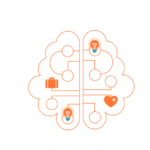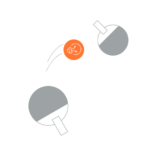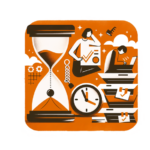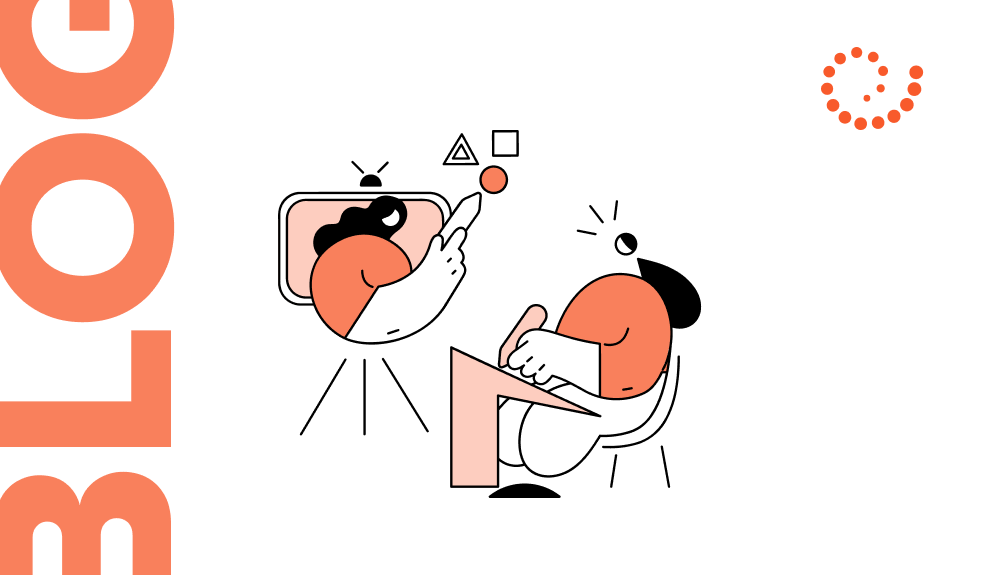
Mentors in IT: Formulas for Successful Tandems
Alla Dortman | February 13th, 2024
A company’s success in the IT market depends to a large extent on its ability to respond quickly to changing requests and to develop trend-setting skills internally, as it becomes very expensive to buy them externally. The company expects the same rapid adaptation of skills from its employees. One way to achieve this is to set up a mentoring program. In this case, the program becomes more than just a training tool, it becomes a strategic investment in the future of the company, designed to ensure continuous development and adaptation to ever-changing market conditions.
We also once launched a mentoring program that was supposed to provide us with a stable pool of developers in the long term, but we did not get a repeatable result. I would like to share the essence of the research that allowed us to formulate a hypothesis about the reasons for the program’s ineffectiveness. In the course of the work, we managed to identify 4 types of mentors and to ensure that it was possible to clarify the request before starting the work. The data obtained allowed us to reach a new level in the construction of mentoring tandems and to develop a product that is in demand in the market.
Where We Started – the Rationale for the Mentoring Program
We always knew that we had a lot of experienced people in our teams, whose unique knowledge had often become a bottleneck. We felt that mentoring should be an effective way of transferring knowledge and experience to colleagues, especially in roles where even one person going on holiday can be a strain on the team.
We have always known that it is more expensive to buy expertise on the market than to develop it internally because even the most experienced specialist needs time to adapt to a particular project and it is not certain that he will be successful. We thought that mentoring would guarantee the transfer of knowledge.
We were sure that in the long run, we would save money and make money because more experienced people would have juniors to take over routine work, while they would be able to solve more complex tasks. This has a direct impact on the productivity of the teams and therefore on the bottom line.
First Results of the Programme After Two Years
After two years, we have summarised the interim results:
- The same mentor achieved different results: with one mentee quickly and successfully, with another mentee slowly and not of the same quality
- Some mentees were only able to work on the project they came to work on
- Some mentees made no progress, citing a lack of motivation
- Some mentees withdrew from the program, citing a mismatch between expectations and reality
- There were occasional communication problems, whether in giving feedback, summarising results, formulating the development plan, or in the performance evaluation process
Why were the results of the mentoring program contradictory?
To answer this question, it is important to articulate our expectations of the mentor. We had an idea of what the mentor would do:
- Provide and develop technical skills
- Provide guidance and advice
- Organize a network of professional contacts
- Provide emotional support
- Provide feedback and assess progress
- Improve the mentee’s self-awareness and reflectiveness
- Support decision-making
- Motivate and inspire, show new horizons
- Support career development
- Help achieve work-life balance
In answer to the question above, it is clear from this list that we were trying to combine very different areas into one role and were often asking the impossible of our mentors. We approached mentoring in a standardized way, aiming to create a one-size-fits-all program with a one-size-fits-all approach for all participants, losing sight of the real needs and opportunities.
A New Approach and Mentor Typology
The new hypothesis and JobEQ research (I have a post about what it is) are based on a simple idea – you should not ask the impossible of a person, it is better to find out what they are good at. I tried to structure the company’s requirements for the role of a mentor and I got 4 types of them, which are reflected in the mentor typology.
Type One: Career Mentor
We expect mentors to help mentees with career development, preparing the mentee for a new role. Mentors can help with career planning, and goal setting and advise on professional development and networking. The question then becomes, what does it take? In terms of the metaprogrammes that can be seen through the JobEQ tests, we need: Future, Convinced by Seeing, Goal Orientation, Focus on People, Focus on Systems, Breadth, Evolution, and Alternatives.
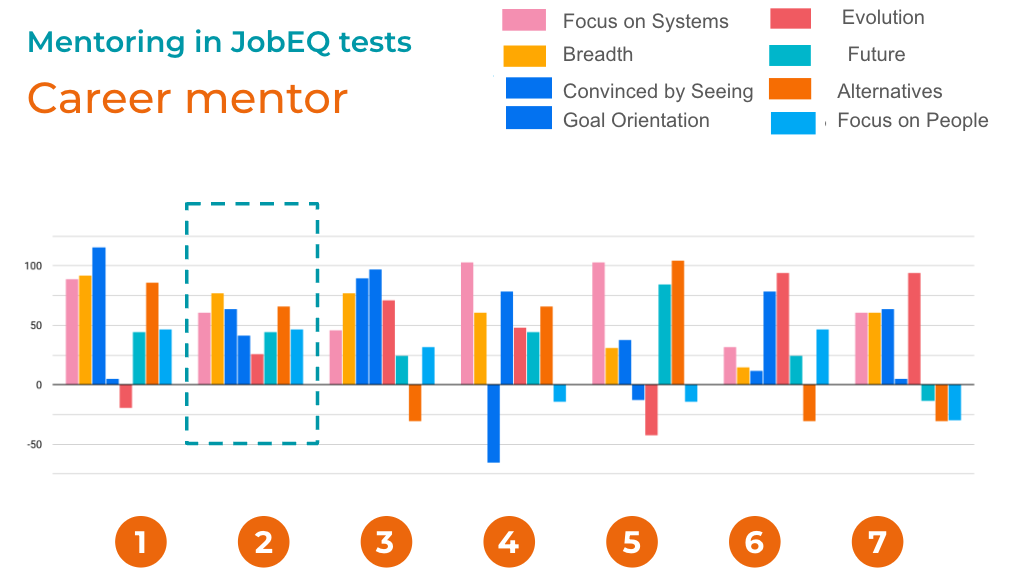
Of the seven mentors in the company analyzed, it is the second one who has what it takes to respond to the company’s expectations specifically in the context of building a mentor career.
Type Two: Technical Mentor
This is an experienced professional who has in-depth knowledge of a particular technology or tool. Such mentors help with learning complex technical skills and concepts. This is the type of person we would entrust with transferring technical skills. What will he or she need in this role? Goal Orientation, Assertiveness (be careful, in JobEQ and psychology this term means completely different things), Tolerance is better to have less, Depth Orientation, Concept, Neutral Communication, Focus on Systems, and Individual Motives.
By setting such research criteria, we saw a very good mentor whose potential we had previously overlooked. On the contrary, by asking him to take care of the mentee and his motivation, we got an unsatisfactory result.
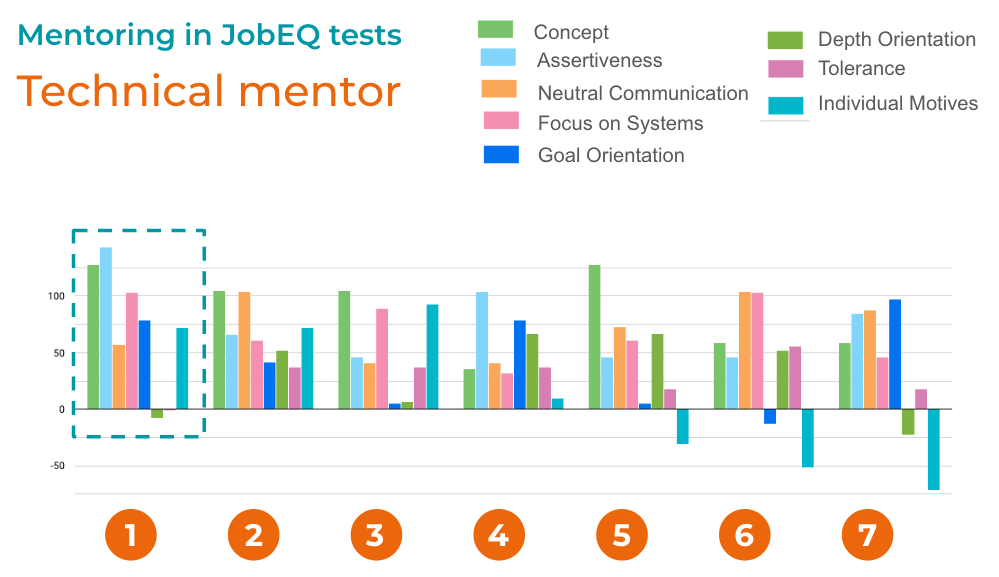
This wrong approach by the company led to an unfortunate outcome – the mentor wanted to leave the mentoring program.
Type Three: Motivational Mentor
This is a role that focuses on developing soft skills, building confidence, and overcoming the mentee’s obstacles. This is someone who can calm you down when you need it, support you when you fail, and encourage you when it seems like you can’t do anything. What does it take? Metaprogrammes “Human” based: Affective Communication, Focus on People, Affiliation, Shared Responsibility, High Tolerance, Persuasive Listening, and Focus on Goal and Alternatives.
I was surprised to find that none of the mentors involved in the program could motivate another person.
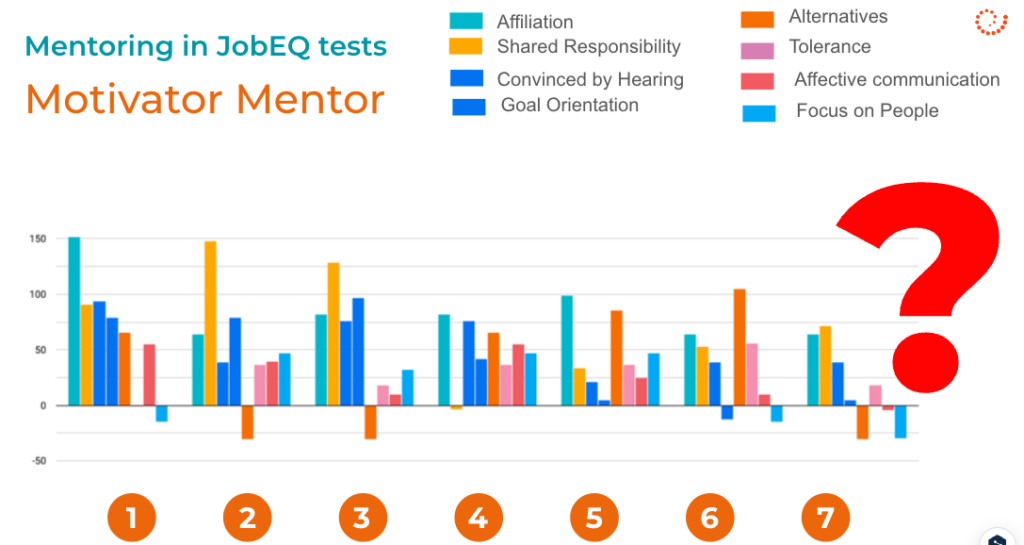
We expected all the mentors to remember how difficult it is to enter the profession, how frustrating it is to understand less than everyone else and to do everything slowly. We expected all the mentors to be able to recognize in time when moral support is needed. How wrong we were. However, the company solved the problem by delegating the motivational part to the HR team.
Fourth type: Mentor-Innovator
The last type I want to introduce is the Mentor-Innovator. These are usually people who are constantly researching and developing in new areas. They can help you stay on top of the latest trends and innovations in IT. They are the first to try new technologies, are open to new things, and like to be involved in new ideas. These people should have a High Concept, Breadth, and Alternatives; they should be Focused on Information, and automatically persuasive to make quick decisions in information-poor environments when not everything is understood and learned, Goal Oriented. We looked at our mentors and saw that two people can be innovators, but they have an important difference in the Goal Orientation metaprogramme.
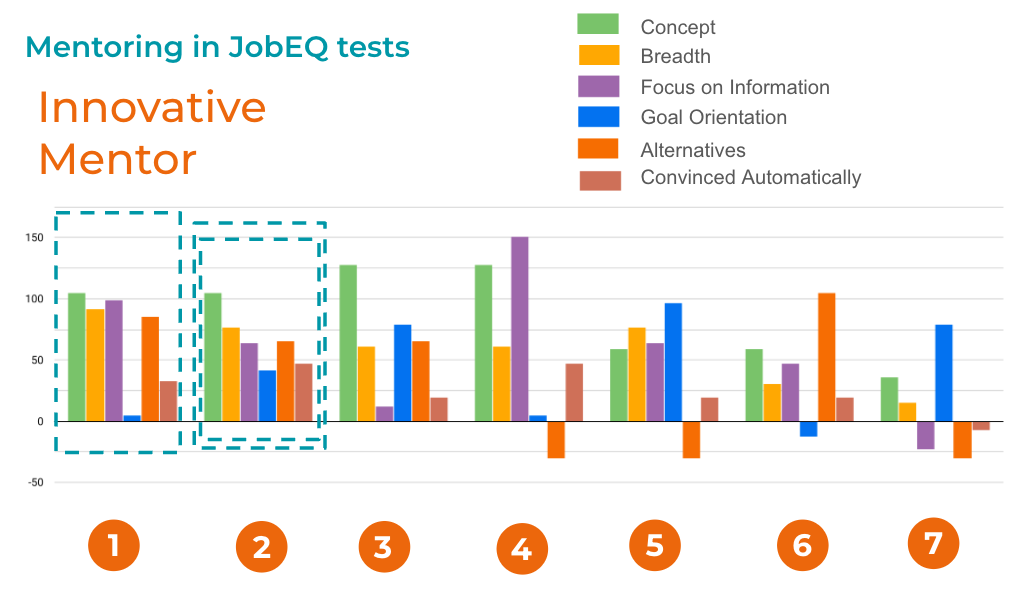
Both are open to new things, and both know the value of being the first to adopt important innovations for the industry, but only one can move towards a goal set by the company rather than intuitively. This difference will have a significant impact on a company’s ability to have a mentor who can lead the mentee, or even the whole company, in a direction that is of interest to the company.
The Formula for Successful Tandems
In summary, I want to say that there is no such thing as mentoring in general, mentoring is always for something. The sooner you identify why you need it, the sooner the mentoring program will deliver long-awaited, repeatable results. There is no such thing as a perfect mentor for everyone, and there is no such thing as a mentor-mentee pair forever. As people change, so do their needs. If the company is not disconnected from the reality of its employees’ capabilities, it will be much easier and cheaper to achieve the result together.
Related posts
- Criteria for Psychological Health: 15 Lessons for the Corporate WorldAccurate segmentation of bone structures is crucial for diagnosing fractures, planning surgeries, and monitoring the progression of diseases like osteoporosis.
- Idea Ping-Pong: Mastering the Art of Collaborative InnovationAccurate segmentation of bone structures is crucial for diagnosing fractures, planning surgeries, and monitoring the progression of diseases like osteoporosis.
- Stress Interviews: Hot Trend or Red Flag Central?Let’s face it – every interview is a bit of a test, right?
- Shine in Your Interview: 3 Dos and Don’ts to Prove Your Competence with ConfidenceWith 12 years of experience in the HR field, I have conducted countless interviews.
- Toxic Productivity: No Rest for the WickedProductivity is usually about how many tasks you can complete in a certain time, like writing texts, doing code reviews, or making calls.
- Why People Drop Out of Online ClassesDuring my long HR career, I have conducted over 1000 interviews for a wide range of IT positions.
Enjoyed the article? Access the full presentation for download

Alla Dortman
HRD, Certified career coach
Discover more about Setronica and explore exciting career opportunities by visiting our dedicated career page.
Recent Posts
- How Brands Use AI to Track, Trace and Prove Their Sustainability Claims
- How AI Recognizes Waste: Smart Recycling Technologies in Action
- Rapid Hypothesis Testing for Driver Retention in Delivery Service
- How Setronica Created an AI Slack Bot, Part 3: Putting Our Bot to Work
- Building a Reliable Monthly Accrual Report: Overcoming Challenges and Implementing Solutions
